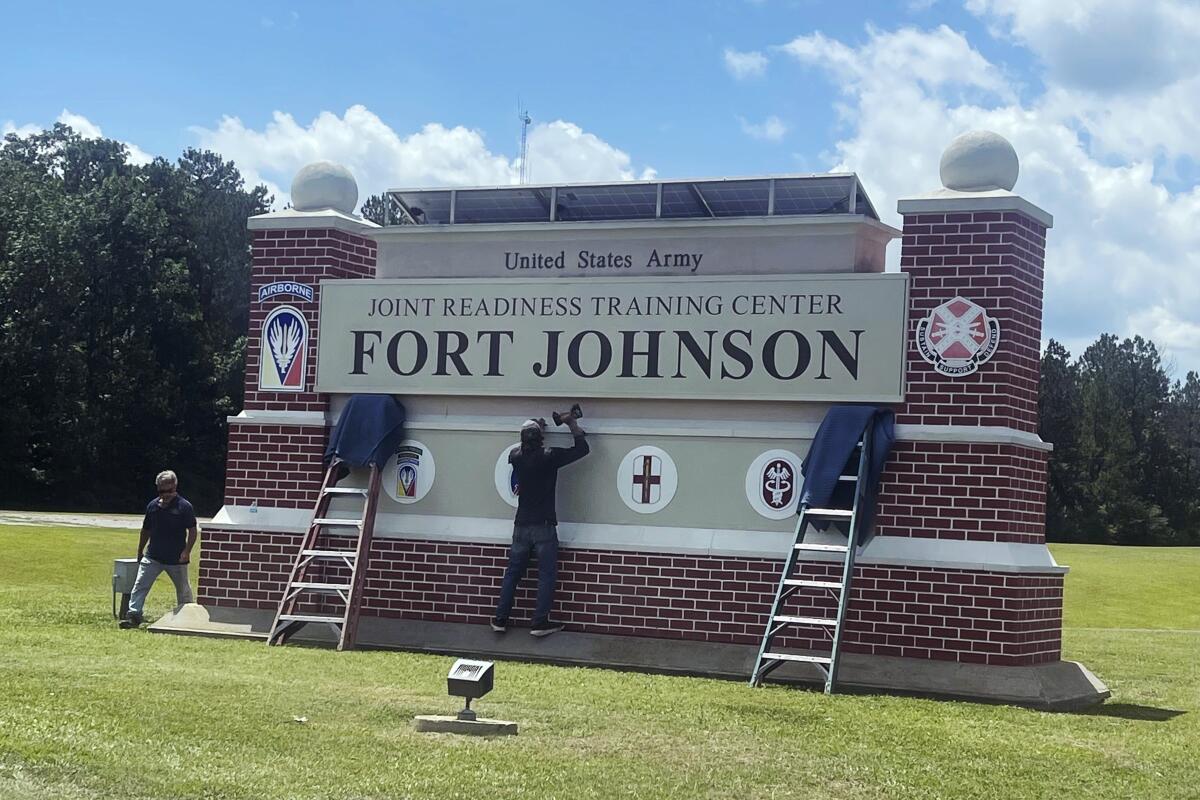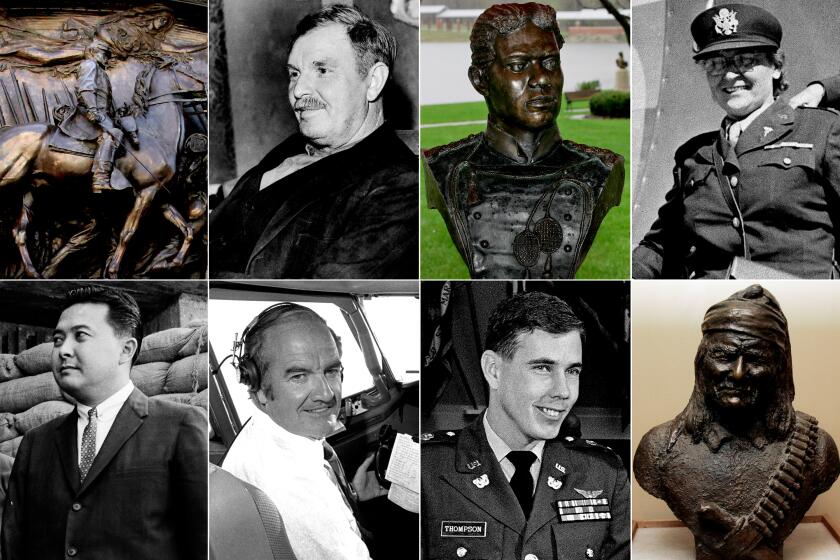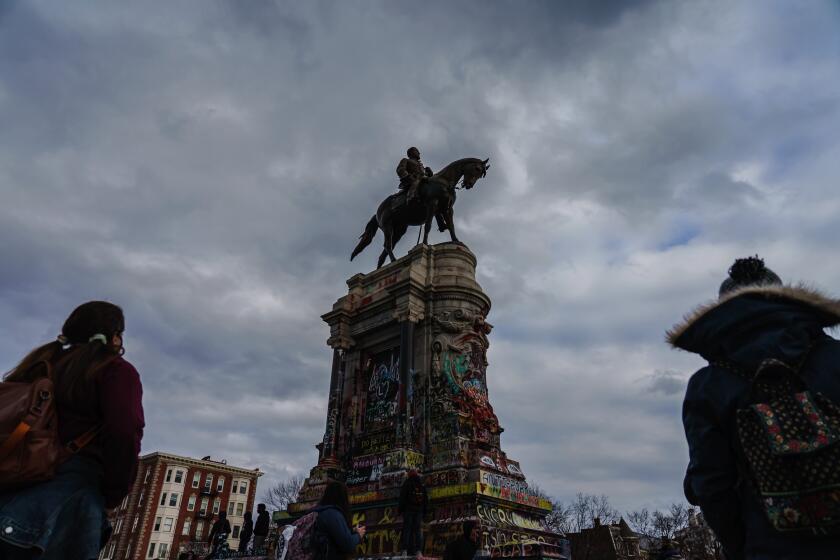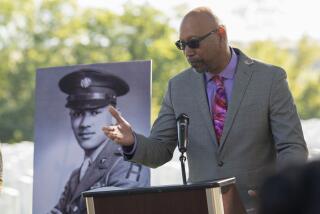Army renames Louisiana base for Black World War I hero who ‘broke the German morale’

FT. JOHNSON, La. — A U.S. Army base in western Louisiana has been renamed to honor Sgt. William Henry Johnson, a Black hero of World War I who received the Medal of Honor nearly a century later.
Ft. Johnson had previously been named after a Confederate commander, Leonidas Polk. Tuesday’s renaming is part of the U.S. military’s efforts to address historic racial injustice — work that included changing the names of nine Army posts that commemorated Confederate officers.
“Sgt. William Henry Johnson embodied the warrior spirit, and we are deeply honored to bear his name,” Brig. Gen. David Garner, the commanding general of the Joint Readiness Training Center at Ft. Johnson, said in a post on Twitter.
While serving on the front lines of France in 1918, Johnson fought off a German night raid near the Argonne Forest, according to the National Museum of the United States Army.
Johnson was wounded 21 times while beating back the attacking forces. He also prevented a wounded Black comrade from being taken prisoner when, after running out of grenades and ammunition, he killed two German soldiers with his knife.
“His frantic attacks broke the German morale and the enemy raiding party retreated,” the museum’s biography of Johnson says.
Take the names of traitor generals off Army posts and replace them with these 10 honorable soldiers.
He survived the war, and President Theodore Roosevelt named him one of the five bravest Americans to serve in the conflict. He insisted that he was no hero, and the museum’s biography quotes him as saying, “There wasn’t anything so fine about it. Just fought for my life. A rabbit would have done that.”
His brave actions were recognized nearly a century later when he was awarded the Congressional Medal of Honor in 2015 “for conspicuous gallantry and intrepidity at the risk of his life above and beyond the call of duty.”
However, Johnson’s actions were not recognized by the Army, which denied him a disability allowance and did not award him a Purple Heart. He struggled as a result of his injuries after returning home to Albany, N.Y., and died of a heart condition in 1929. He was only 32.
The current process of renaming nine Army posts marks the first time that bases will be named after Black soldiers and women.
We’re changing the names of Ft. Hood, Ft. Bragg and others now. But what were we thinking when we named military sites after leaders of a white separatist insurrection?
Earlier this month, Ft. Bragg in North Carolina became Ft. Liberty, and Ft. Benning in Georgia was renamed Ft. Moore last month.
The original naming process involved members of local communities, but Black residents were left out of the conversations. Bases were named after soldiers born or raised nearby, no matter how effectively they performed their duties. Confederate Gen. Braxton Bragg is widely regarded among historians as a poor leader who did not have the respect of his troops.
More to Read
Sign up for Essential California
The most important California stories and recommendations in your inbox every morning.
You may occasionally receive promotional content from the Los Angeles Times.












